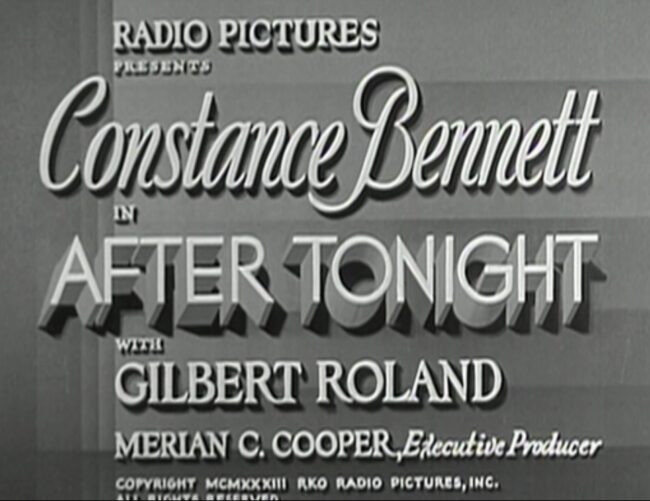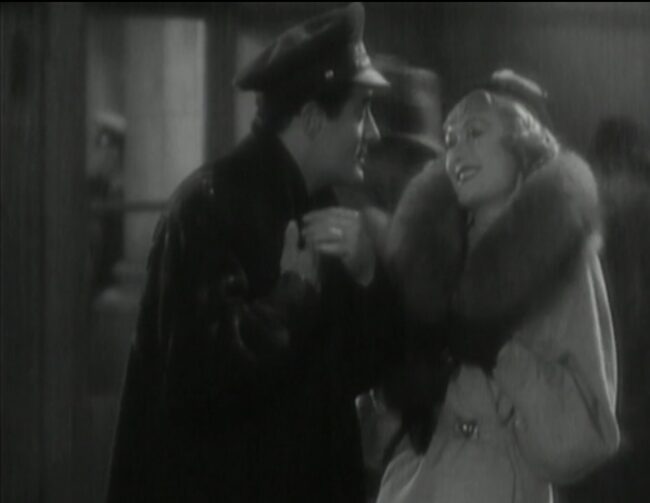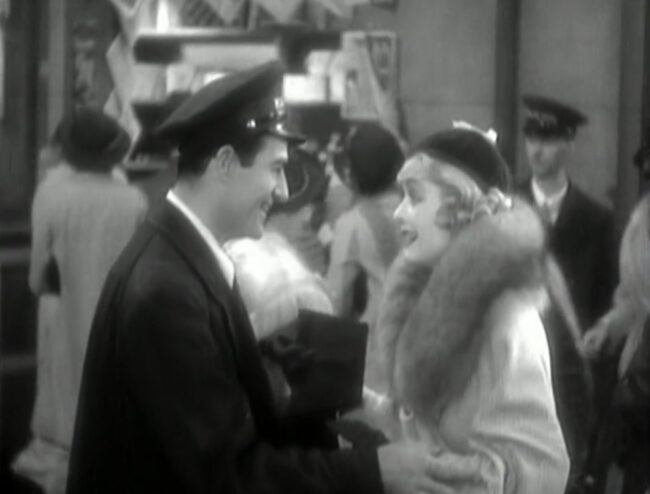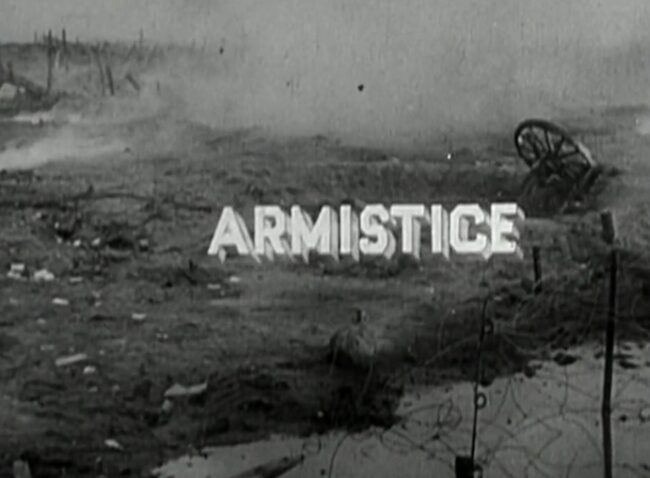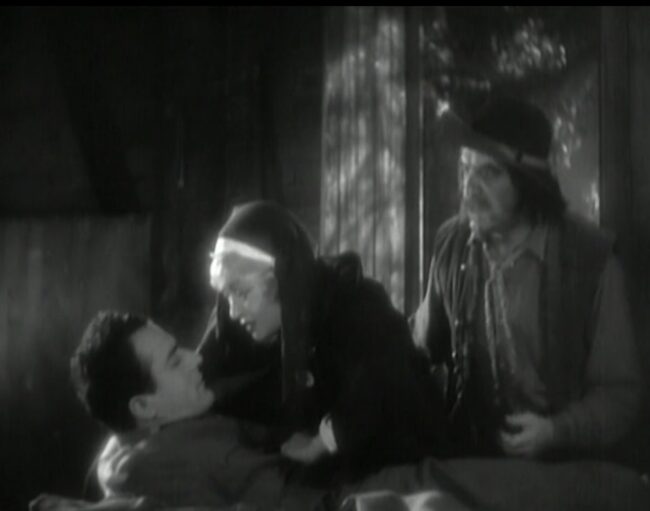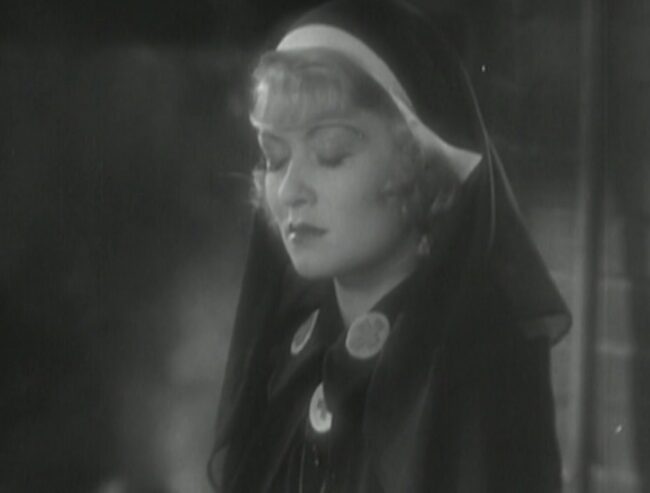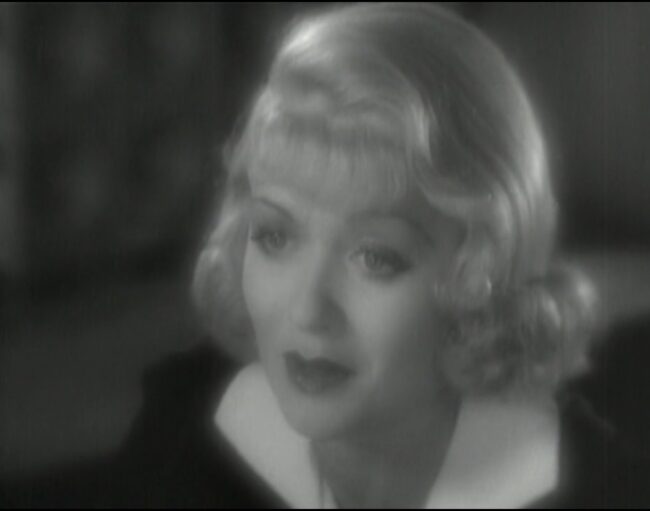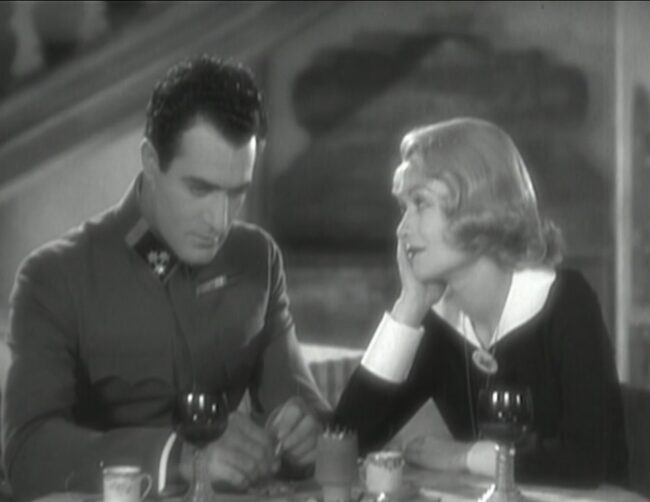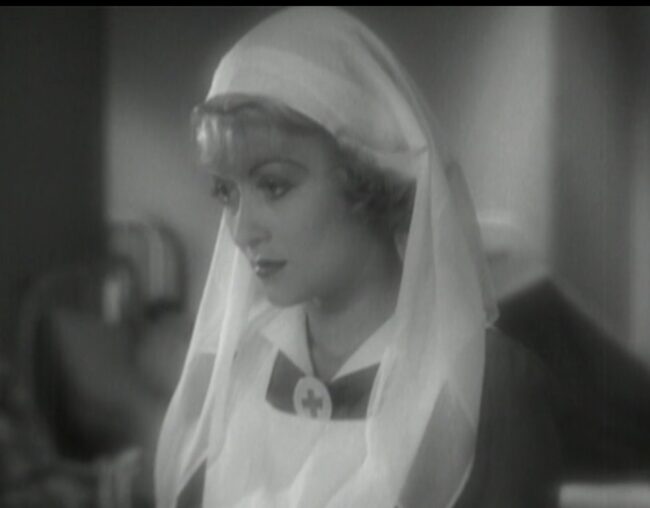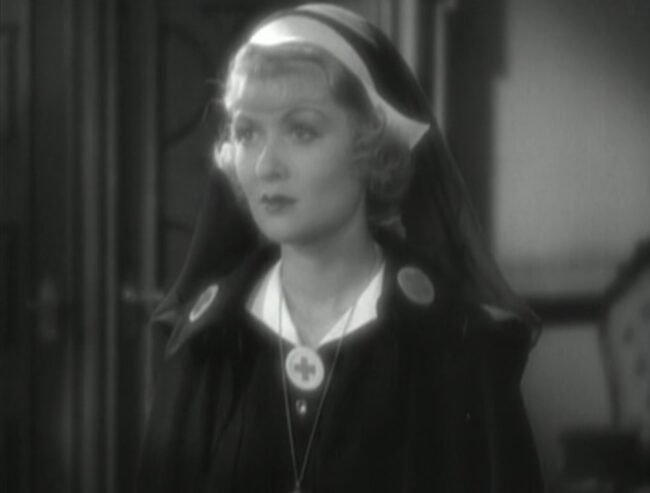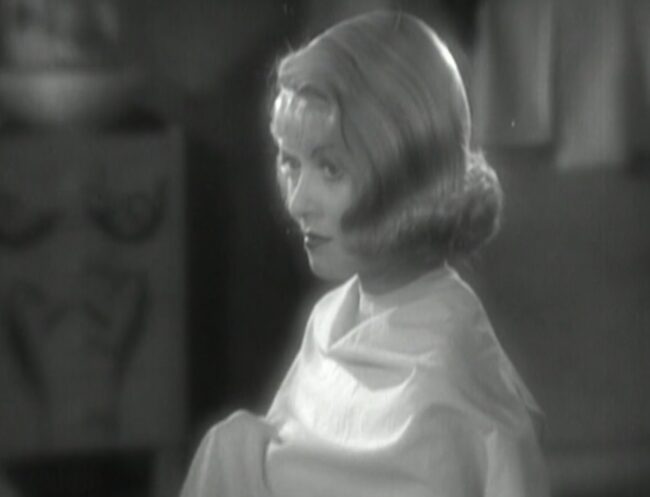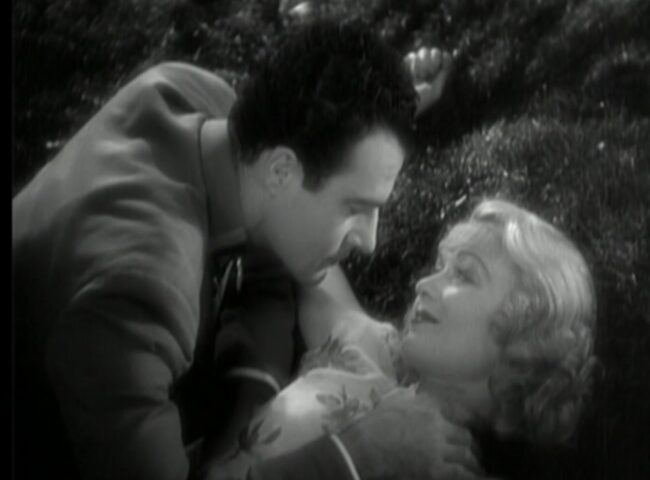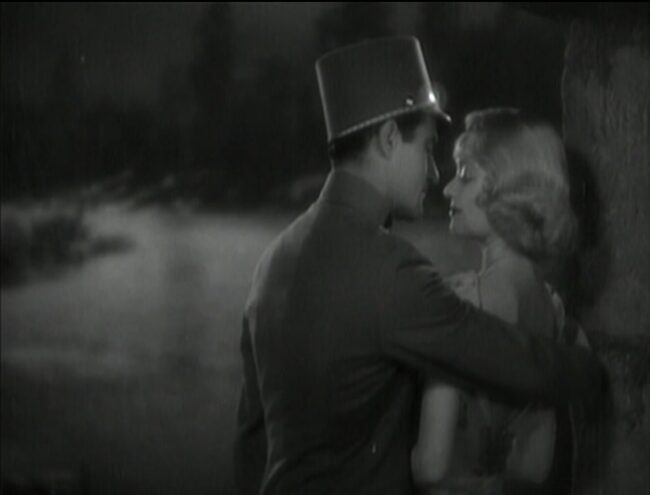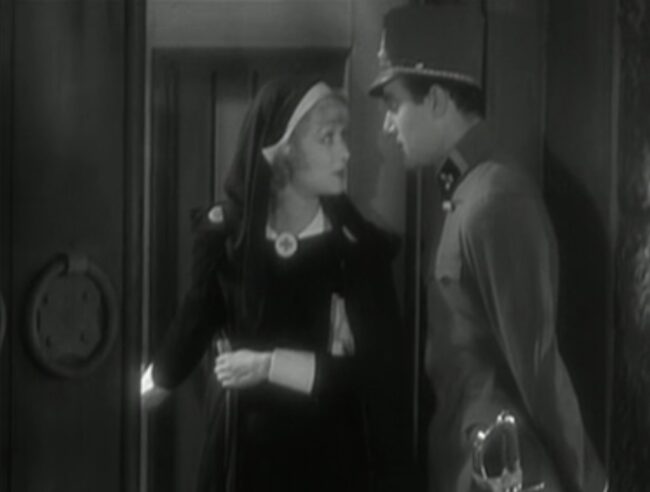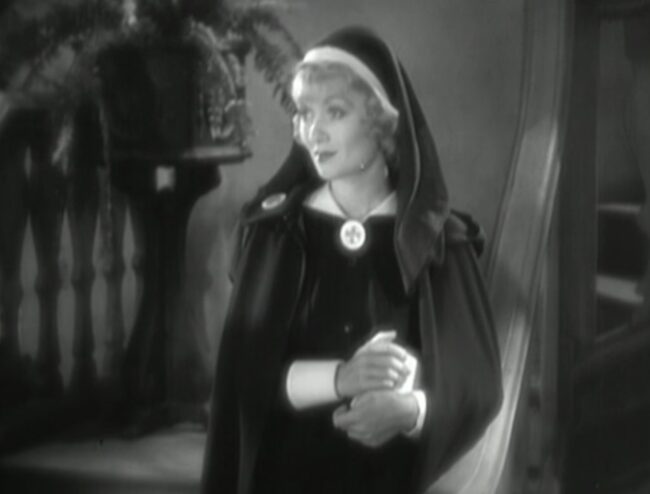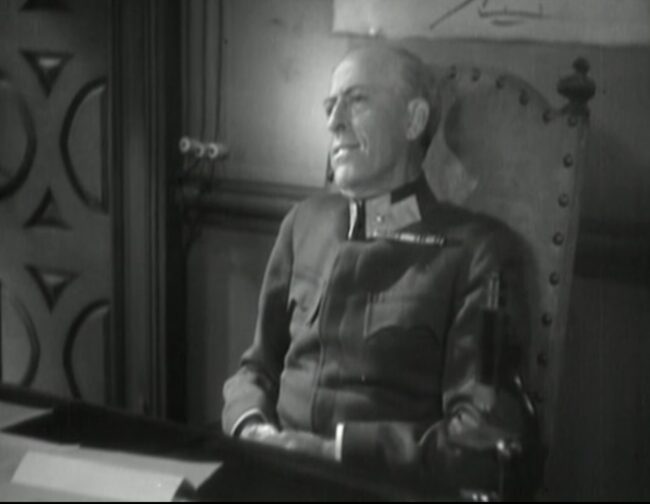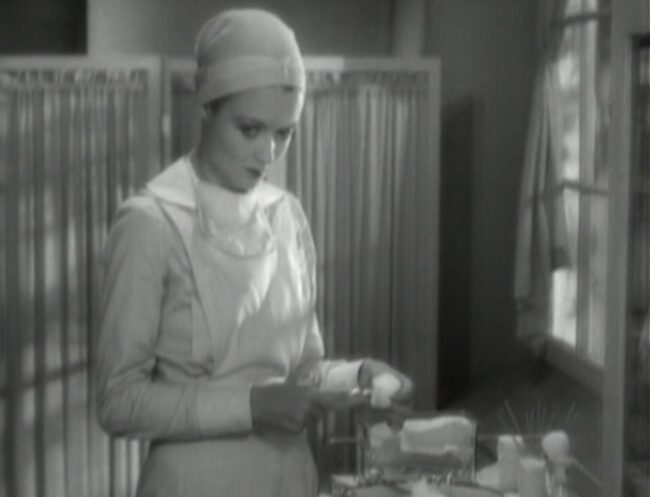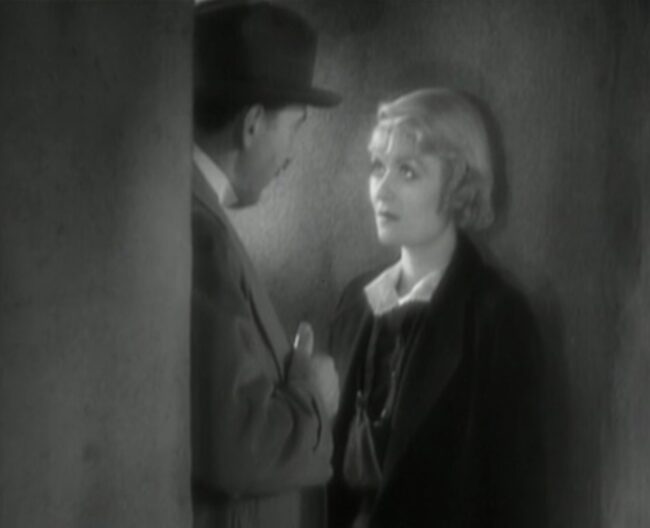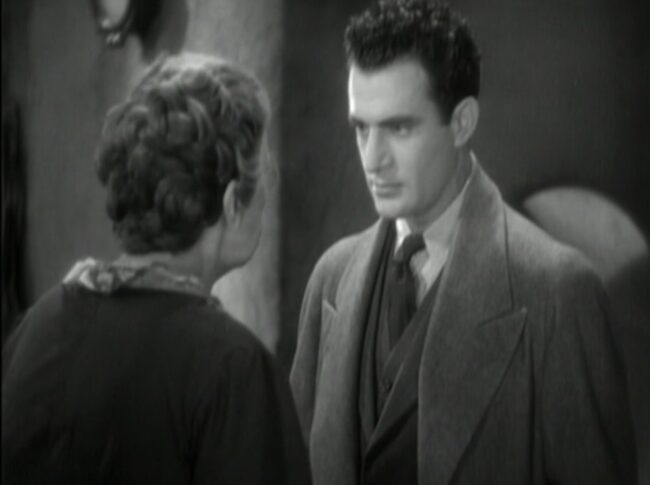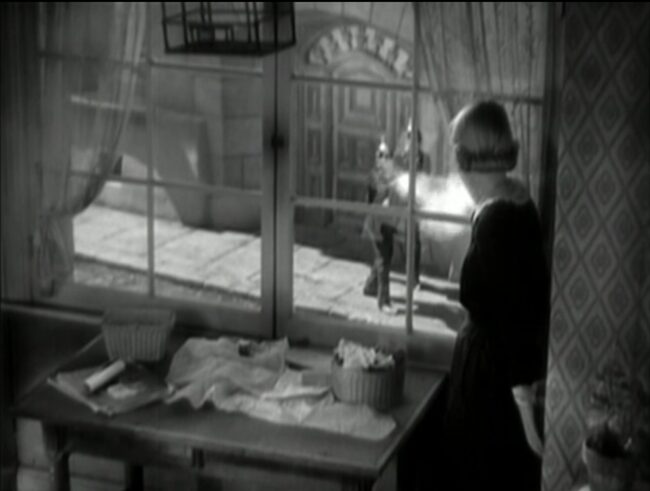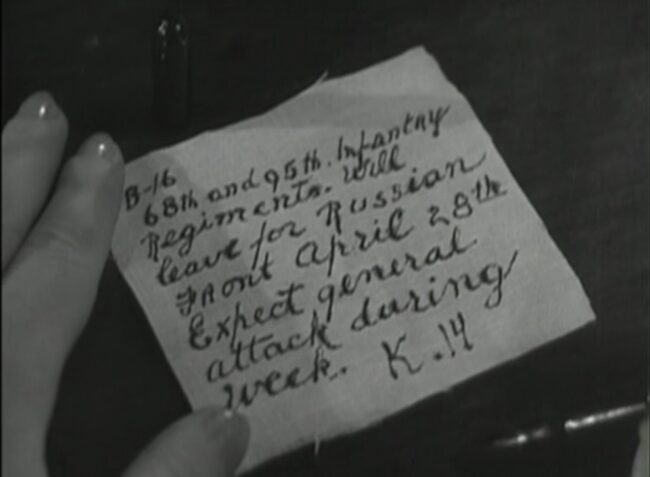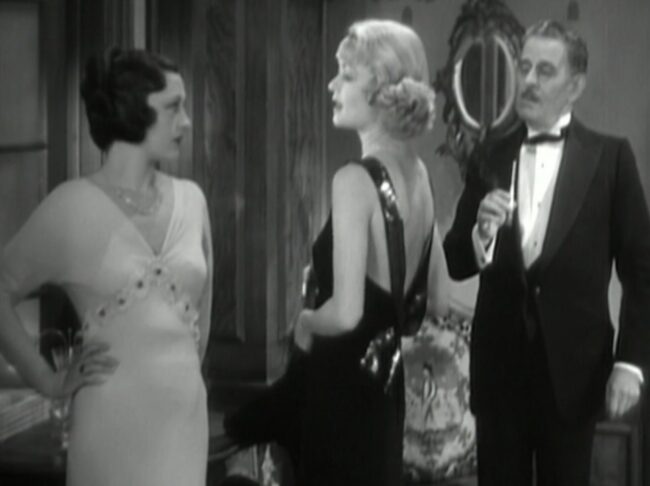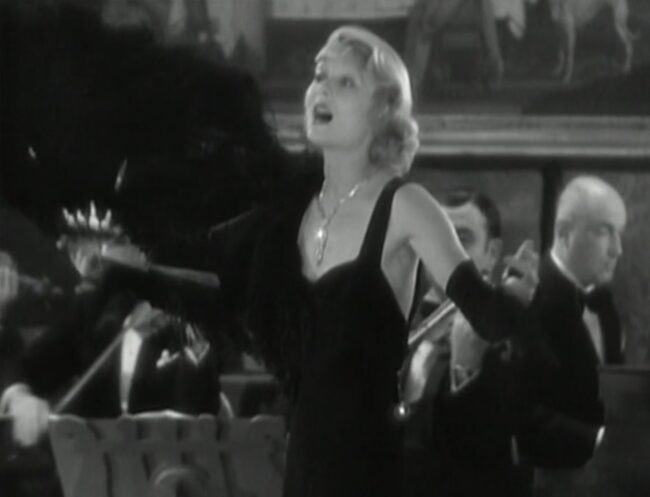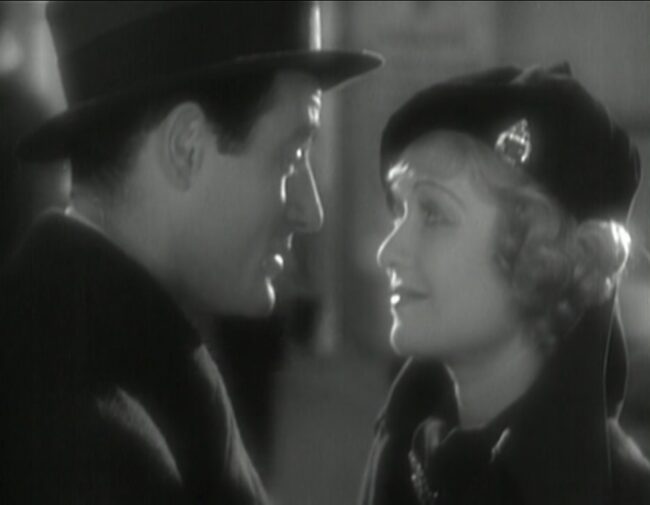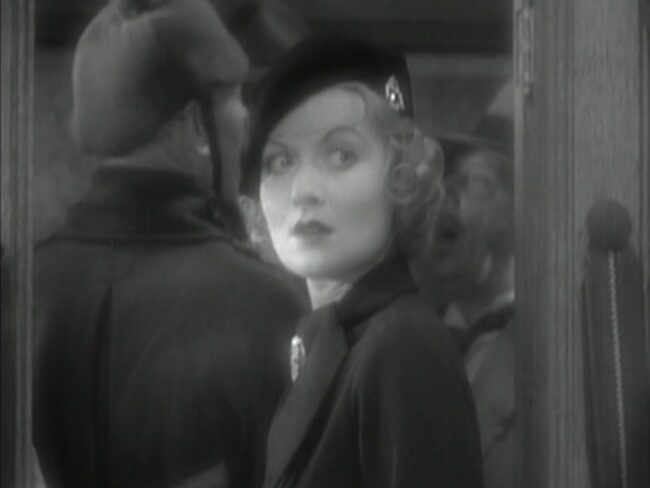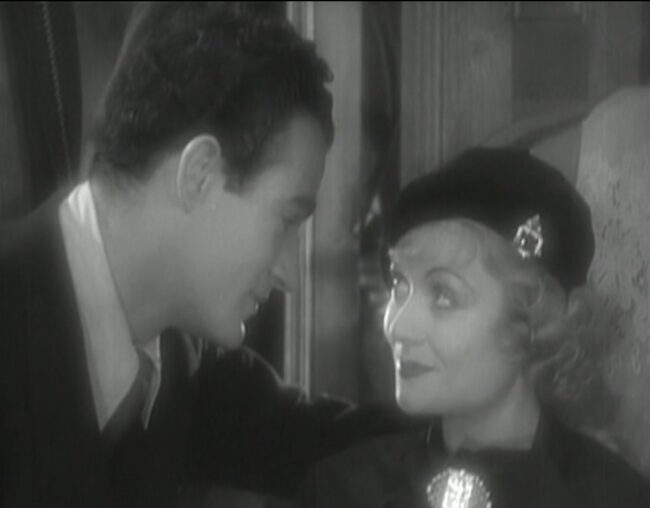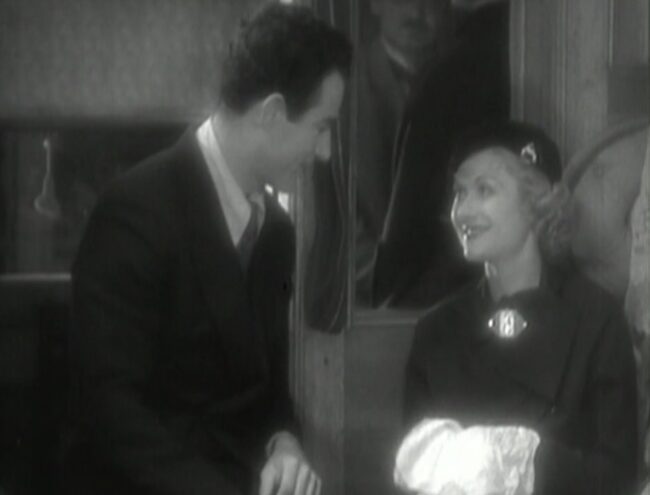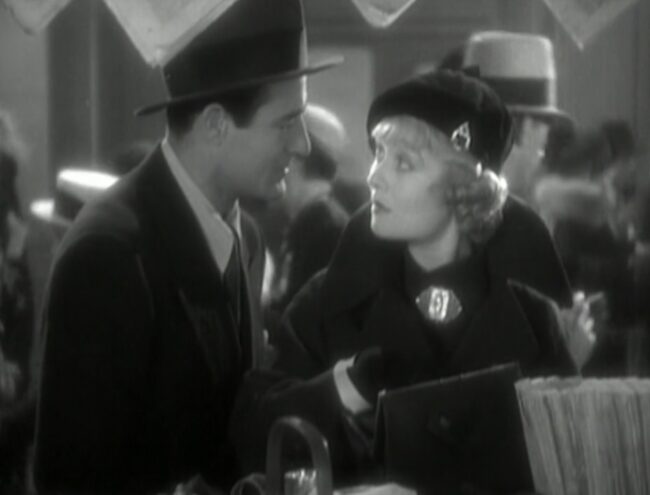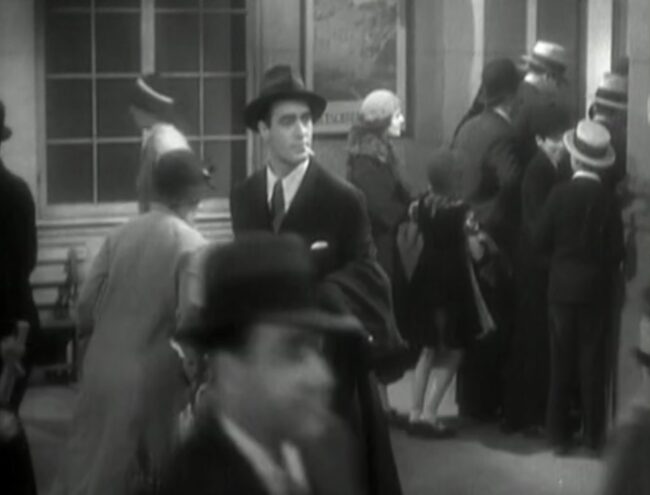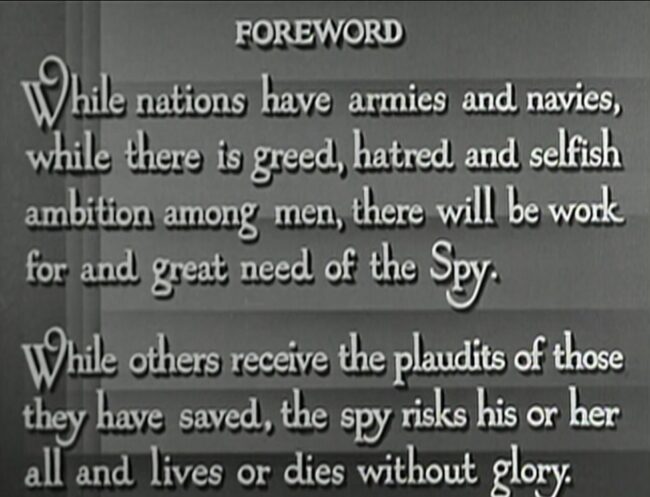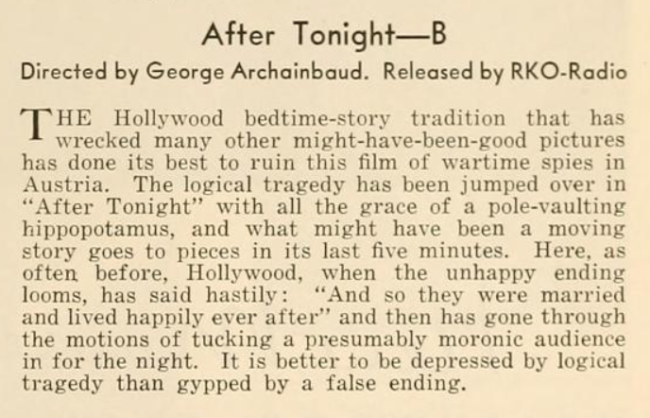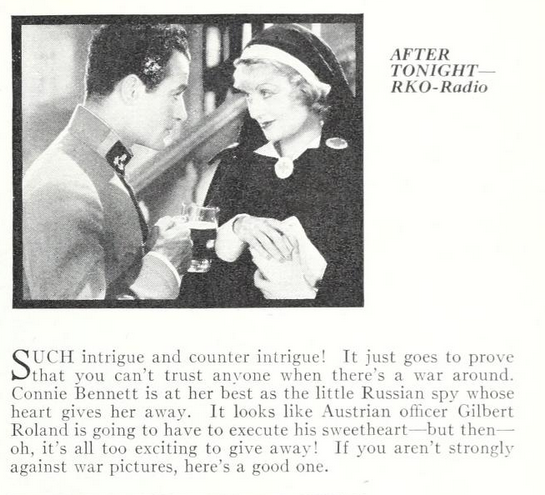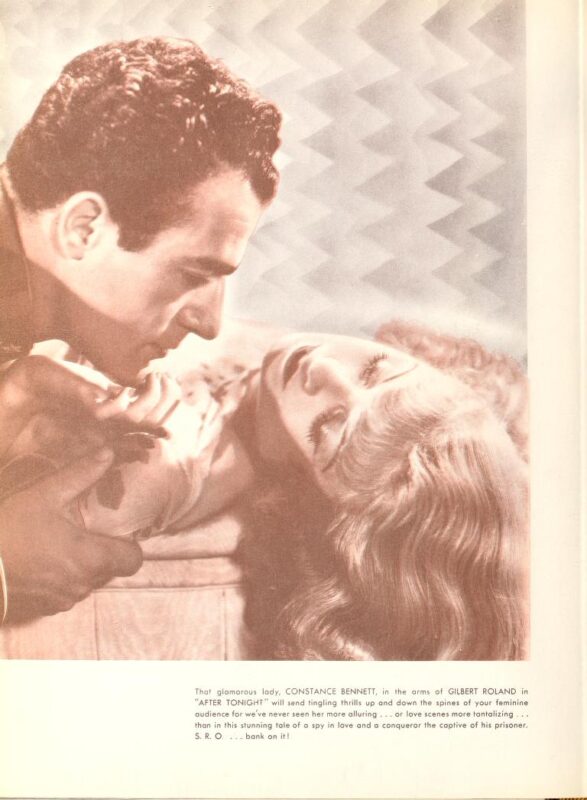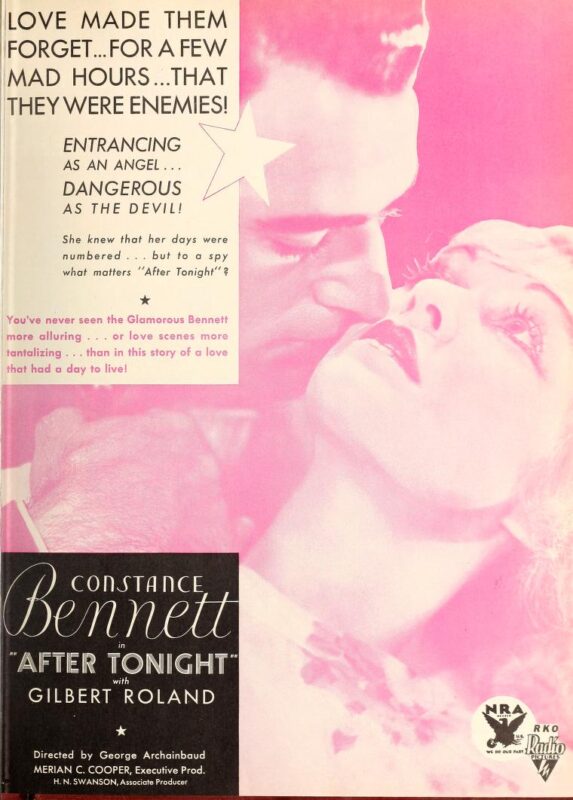Dislike
Starring: Constance Bennett, Gilbert Roland, Edward Ellis, Sam Godfrey, Lucien Prival, Mischa Auer, Ben Hendricks Jr.
Directed by: George Archainbaud
Released by: RKO
Runtime: 71 minutes
Release date: November 10, 1933
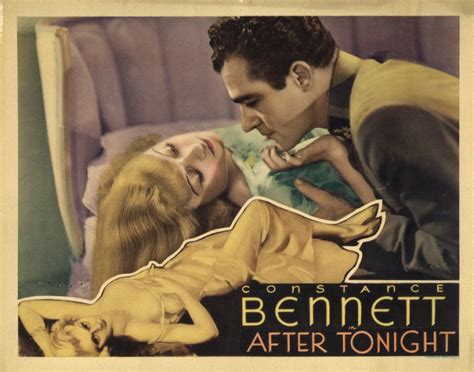
Availability
After Tonight was released by RKO.
Warner Bros. is the current owner of the RKO library.
After Tonight has not been released on physical media, but does play routinely on Turner Classic Movies.
Proof That It’s Pre-Code
- Constance Bennett gets strip-searched off-screen. The chief asks the matron if she’s found anything and she reports, “Nothing so far.” Bennett snaps back, “So far? Just how much farther could you have gone?”
After Tonight: Mata Ho-Hum
“We suddenly seem so very important. Don’t we?”
“Can just two people ever be so very important?”
“You are to me. The one completely lovely thing I’ve ever known.”
This one’s a timestamp checker. About every five minutes, I was checking to see how much longer it had to go.
A romantic wartime light drama, After Tonight sees Constance Bennett as a Russian spy working in Austria during World War I. She is Carla/Karen/K-14, able to blend into any surroundings. She begins her stint as a nightclub singer and then works as a seamstress before moving into nursing. She is a master of disguise, insomuch that sometimes she wears different clothes.
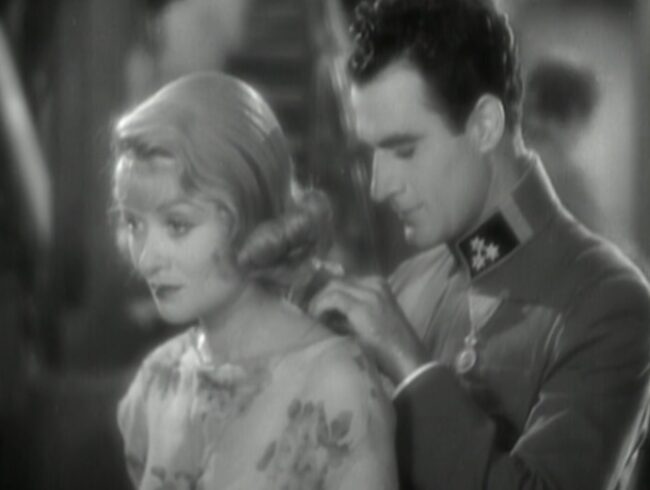
While we do get a brief prologue/meet cute between Karen and Captain Rudolf Ritter (Gilbert Roland, charmless), the first half of the film is far more interested in spy craft, making the movie feel like you’re watching amateur hour for magicians. One plot involves a book with codes written invisible ink that goes out under a secret stair that then goes through the secret passage that leads to a barn and — well, it goes on and on from there.
These World War I women spy movies were a fairly big enterprise in the early 30s, with Garbo doing Mata Hari, Dietrich doing Dishonored, and Kay Francis even did a post-Code spy yarn called British Agent. This film isn’t even Constance Bennett’s first go around at playing cloak and dagger– she was also in Three Faces East in 1930.
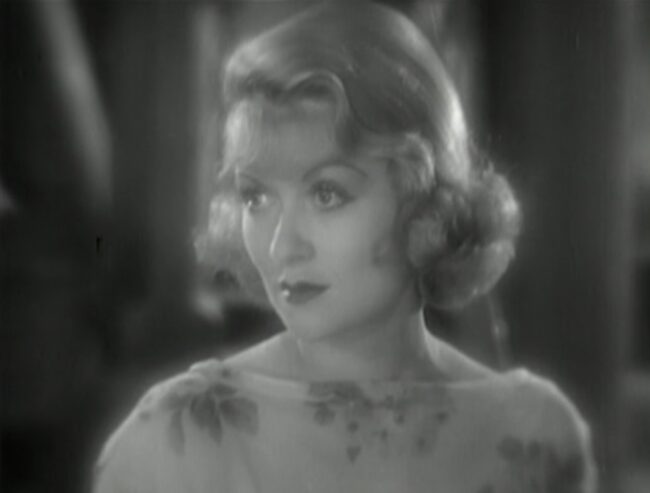
All of these films are compelling in showing world-weary women who risk their lives for their country. In early 30s tradition, it’s not patriotism that ignites this fire, but despondency, which unravels quickly when a handsome yet gentle enemy enters the picture. Mata Hari is still the best of these, mixing pathos with MGM pageantry, but what a majority of these films do is refuse to flinch away from the consequences of making these choices. You fall in love with the enemy and you will die.
After Tonight does not want Constance to die. In fact, it doesn’t seem to want much for her, other to be fawned over by a stilted Gilbert Rowland with tin-eared sweet nothings. For a movie that dabbles so much in spying and double identities, we hardly learn anything about Karen; a late film realization that not only can she speak Russian but everyone knows that she speaks Russian, feels as shoehorned in as a Gypsy character whose scenes stick out from pure screenwriter desperation to conjure a happy ending from nothingness.
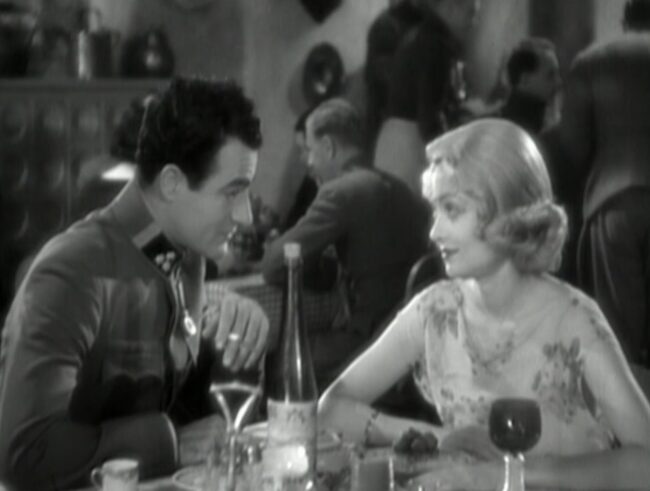
While I consider Constance Bennett to be one of the most ethereally beautiful women to have ever lived, her acting here is stilted, like she was arguing between takes. Gilbert Rowland takes what could be a meaty dramatic part and limps through. Edward Ellis, at third billed and playing a weapons researcher, is barely in the picture, and also ended up severely underwritten.
After Tonight is a turgid bore. If I think of anything nice to say about the movie, I’ll be sure to add it in here later. But I doubt it.
More Images
Trivia, Miscellany & Links
- There’s a lot of stock footage near the end showing the finish of World War I, and I definitely recognized some shots from The Lost Squadron in there.
- Mordaunt Hall compares the movie as a preferable alternative to “the plethora of gangster yarns and those persistent backstage chronicles”, but still notes that After Tonight, “taxes one’s credulity, and, although the characters occasionally reveal ingenious streaks, they are frequently far from intelligent.” (New York Times.)
- One reviewer marvels at the fact that eight years after this film’s release, Roland and Bennett would end up getting married. (The Movie Scene)
- Just wanted to point out this film was released on November 10th, which is the day before Armistice Day. Which feels kind of tasteless to me, but, eh, who knows.
- Other links:
More to Explore
What is Pre-Code?
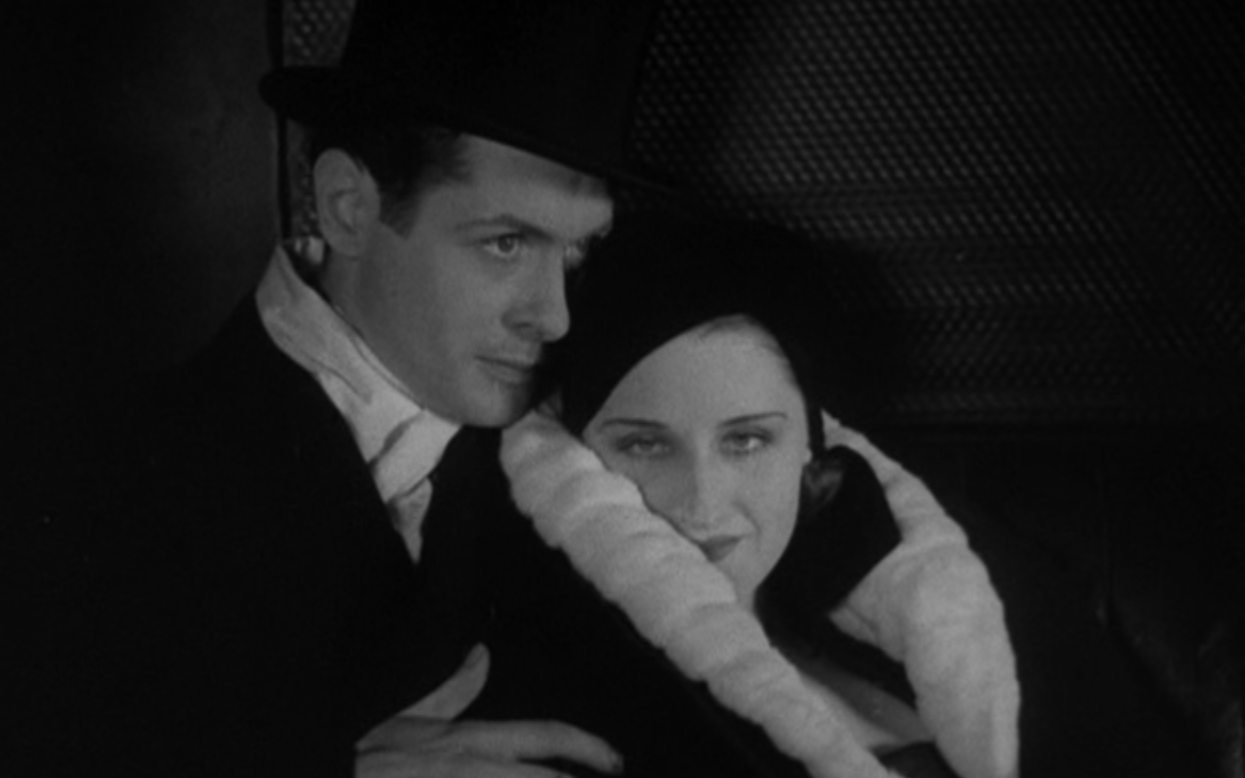
Click to learn more about pre-Code Hollywood, 1930-4, when movies were sexy, smart and sophisticated.
Index of Film Reviews
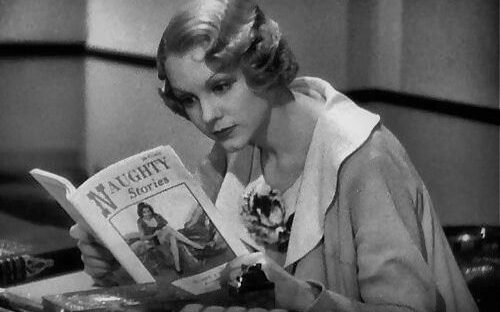
Browse all of the movie reviews on the site as well as schedules and pages that detail the world of pre-Code.
Explore the Pre-Code Era
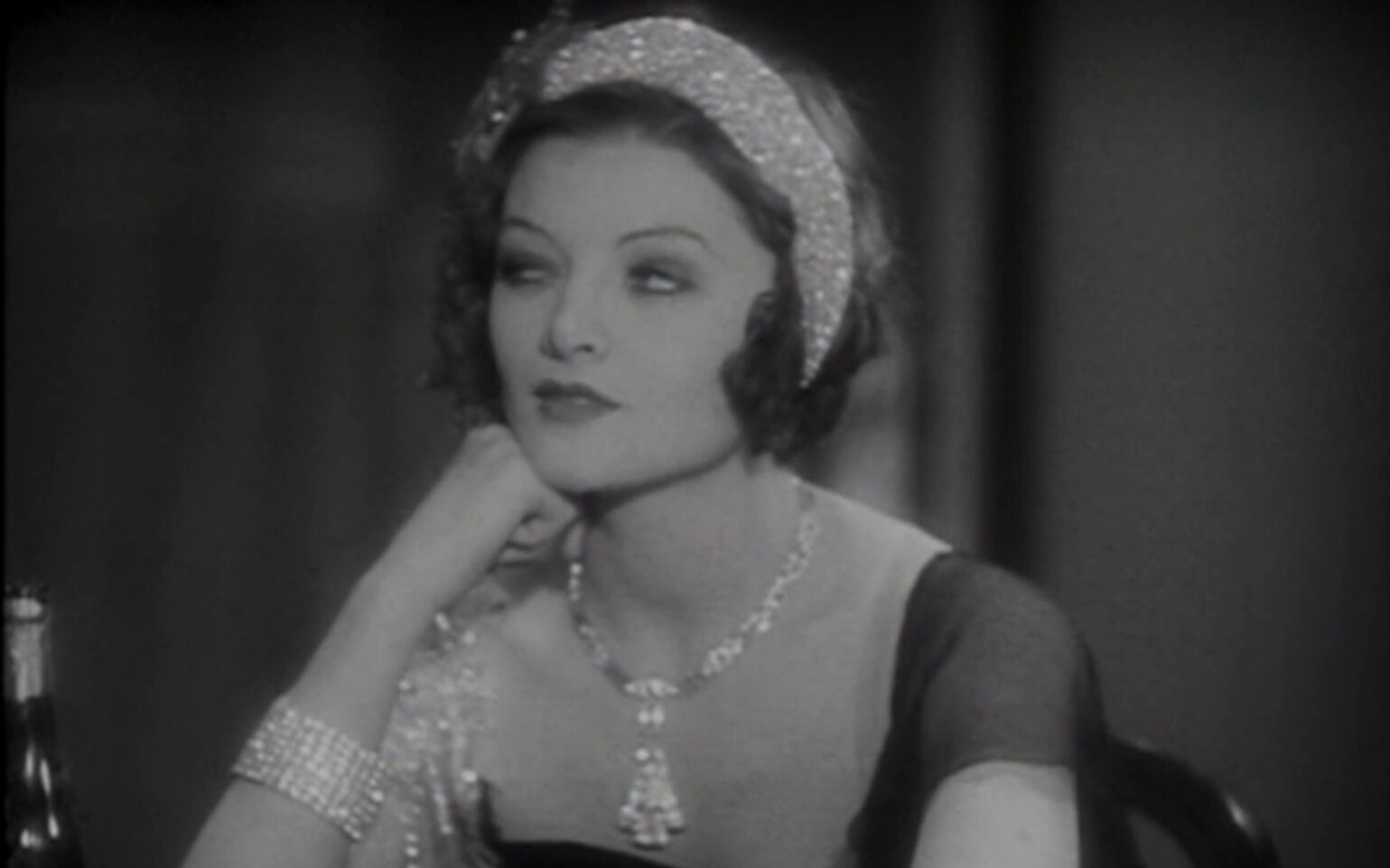
Dig through the pre-Code era through its highlights, its biggest hits, its essential films, and more.
